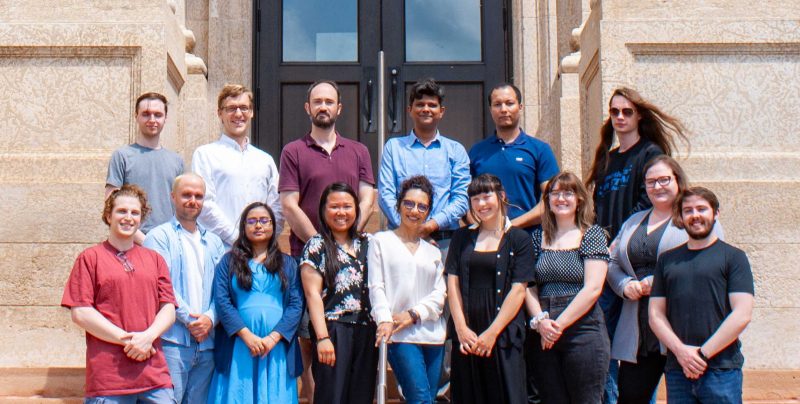
Dr. Samar Safi-Harb, professor, Physics and Astronomy and Canada Research Chair in Extreme Astrophysics.
Putting UM astrophysicists on the map… of the cosmos
Dr. Samar Safi-Harb’s team joins the LIGO scientific collaboration
The University of Manitoba is now member of the LIGO Scientific Collaboration (LSC) – an international network of scientists utilizing the Laser Interferometer Gravitational Wave Observatory (LIGO) to advance the collective exploration of fundamentals of science.
Dr. Samar Safi-Harb, professor of physics and astronomy with the department of physics and astronomy and Canada Research Chair in Extreme Astrophysics, leads the UM team exploring the origins of heavy metals and the physics of the extreme permeating our invisible universe.
Extreme astrophysics explores the physics of the extremes of nature — extreme temperatures, magnetic fields and gravity, conditions dominating celestial collisions of exotic, dead stars like black holes and neutron stars. Safi-Harb and team will bring their expertise on the aftermath of explosions of stars and their evolution, to better understand the fundamentals of extreme events in outer space.

Dr. Samar Safi-Harb’s extreme astrophysics group at UM.
“Joining the LSC will allow UM to bring our complementary and diverse expertise in extreme and supernova remnants astrophysics to the collaboration to answer some of the most fundamental questions about our origins and the physics of the extreme unattainable on Earth,” said Safi-Harb. “It is a truly exciting ‘multi-messenger’ era in Astrophysics where we can view the Universe, not just with light, but also with gravitational waves. Along with the thrilling discoveries ahead of us, this collaboration will bring much visibility to UM research, benefiting current students and postdocs while attracting talent and funding for years to come.”
Membership in this prestigious research group will provide UM researchers with opportunities for scientific discoveries and technology development, training, mentorship, collaborations, and future employment opportunities. Safi-Harb’s team will have full access to LIGO’s data and contribute to the group’s collective discoveries, leading to real impacts on our collective understanding of outer space.
“Congratulations to Dr. Safi-Harb and the entire department of physics and astronomy. By joining the LSC, UM is well positioned to make significant contributions to the knowledge and discovery of astrophysics,” said Dr. Mario Pinto, Vice-President (Research and International). “This global effort will provide UM researchers with opportunities for international collaboration, networking and data mining, and connection to future employment opportunities in academia and industry.”
As a member of the LSC, UM will have access to data from the US-based LIGO and will contribute to discovery and collaboration with other gravitational wave detectors such as Virgo in Italy and the forthcoming KAGRA in Japan.
Research at the University of Manitoba is partially supported by funding from the Government of Canada Research Support Fund.






